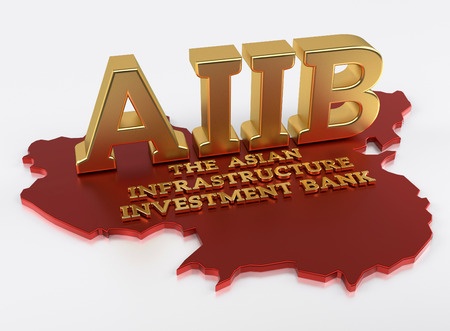6 September, 2015
In a bid to increase its international financial clout, and with much fanfare, Beijing last year announced a new initiative: the Asian Infrastructure Investment Bank (AIIB), focused on supporting global infrastructure construction, especially in Asia. By spring 2015, almost all Asian countries (with the notable exception of Japan) and most major countries outside Asia (with the notable exceptions of the United States and Canada) had joined the AIIB.
This success has been controversial. When the UK joined the AIIB, the United States expressed displeasure that, in diplomatic terms, was surprisingly direct, especially considering their historic relationship. The White House statement read: "We hope and expect that the UK will use its voice to push for adoption of high standards.” It went on to note: “We have concerns about whether the AIIB will meet these high standards…"
Not everyone in the United States agreed. Former U.S. Treasury Secretary Lawrence Summers wrote that U.S. resistance to the AIIB might signal "the moment the United States lost its role as the underwriter of the global economic system."
Clearly, the United States and Japan are concerned about China’s increasing economic strength and are worried that the AIIB may become more than a competitor to the U.S.-dominated World Bank and the Japanese-influenced Asian Development Bank (ADB) but also an instrument of Chinese foreign policy. And both countries are fearful the AIIB might enable the Chinese yuan to become the preferred reserve currency in Asia, weakening the dollar and the yen and leading to the reshaping of global economic governance.
Are these fears justified? China’s past conduct when investing in Africa and Asia has been less than optimal when it comes to good governance. Transparency has not always been what one would wish, while, indisputably, there has been corruption, with monies invested not always reaching those who need it most. However, there is, irrefutably, a need for greater infrastructure spending across Asia. The ADB estimates that demand for infrastructure may reach $8 trillion by 2020. In this regard, the AIIB is a needed, welcome addition to the global financial sphere.
Time will tell whether the AIIB can operate according to international standards. To prove its critics wrong and deliver on its promises, the bank will need to establish the correct organizational culture, with a strong tone at the top, while implementing appropriate internal controls, due diligence and safeguards. Global investors should weigh the transparency of the bank’s investment strategies, inquire as to how external vendors will be chosen, and ask whether the tender processes for infrastructure projects will be open and who will benefit. These are issues that not even the ADB has always gotten right. Accordingly, it will behoove investors to monitor projects after bids have been accepted and projects commenced.
As the AIIB begins operations next year, the global media will be watching. But that watchfulness must be maintained. When troubles arise, the bank likely will deal with them quickly. But, over time, the bank’s enthusiasm for strict due diligence may wane.
For further information, please contact:
Stuart Witchell, Senior Managing Director, FTI Consulting
stuart.witchell@fticonsulting.com






